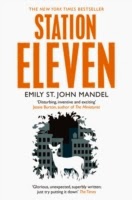 |
| (c) Daniel Bursch / NASA |
Abingdon sits at the heart of a lot of science - and increasingly that includes Space Exploration. Whether it's next generation spaceplanes at Culham, space test facilities at the Rutherford Appleton Labs or the new European Centre for Space Applications at Harwell, it seems like dozens of new space organisations and companies are springing up all over the place.
So no apologies if today’s 3-4-Friday has a slightly out-of-this-word, sorry, world feel to it.
This November, astronaut Tim Peake will be the first British astronaut to be launched into space on a mission to the International Space Station (ISS), and he’s written the forward for Louie Stowell's ‘The Usborne Official Astronaut's Handbook’. It's a funny and fascinating how-to guide for budding astronauts, and Usborne says it provides a 'crash course' on what it takes to travel into space (but hopefully not that sort of crash).
Given that it costs about £300 million per ISS mission, we reckon £6.99 is a highly cost-effective way of learning how to train for, get to and live in space for kids – without actually going there.
Of course, if we don’t learn how to live in space, we’re sitting ducks for any rogue asteroid, nearby supernova explosion – or just wandering exo-planet that might stray too close. And that is the starting point for Neal Stephenson’s epic new science fiction novel ‘Seveneves’, published yesterday.
When something (or someone) blows up the Moon, humans are forced to evacuate the Earth – and we follow the survivors over the next several hundred years as they evolve in space. As with all Stephenson’s novels, the science is merciless, the scale is epic, and you have to be up for the ride. But the result is a blistering, catch-your-breath, against-the-odds tale that might just serve as an emergency handbook in case we ever have to leave Earth in a hurry.
 And if you’ve ever wondered what a post-apocalyptic life on Earth might actually be like, then ‘Station Eleven’ by Emily St John Mandel won this year’s Arthur C Clarke award for the best science fiction novel of the year (it was also longlisted for the Bailey’s Prize for women’s fiction).
And if you’ve ever wondered what a post-apocalyptic life on Earth might actually be like, then ‘Station Eleven’ by Emily St John Mandel won this year’s Arthur C Clarke award for the best science fiction novel of the year (it was also longlisted for the Bailey’s Prize for women’s fiction).It’s the elegiac story of Kirsten, who, part of a touring theatre group, performs Shakespeare to settlements that have grown up in the aftermath of society’s collapse. Haunting, yet strangely reassuring, it reminds us of what we can be thankful about in the absence of flu epidemics (or any other world-ending scenario).
For whilst we may strive to go off into space, we can't ignore what we have to protect here on Earth. If only there were a way of linking the two?



No comments:
Post a Comment